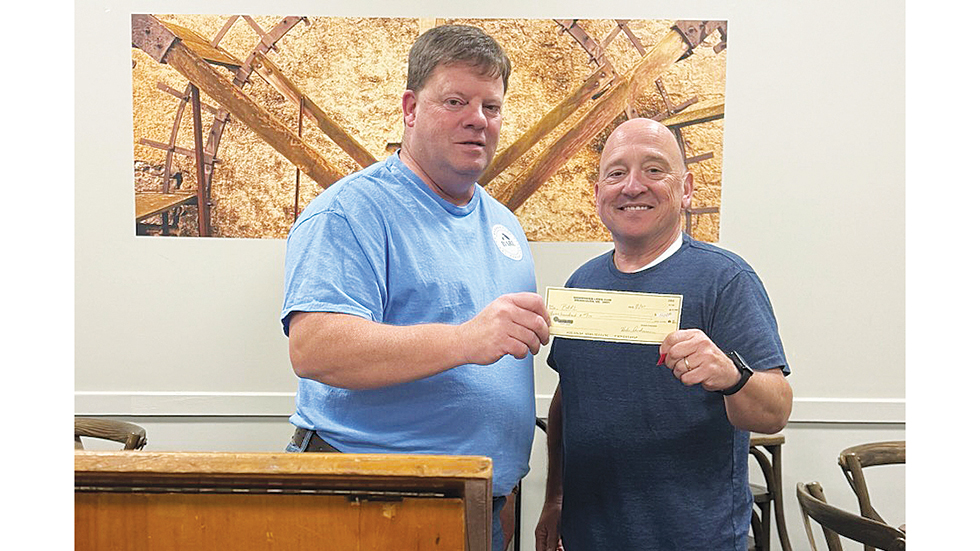Shopper scam seen in community
Published 6:00 pm Tuesday, September 13, 2011
Kathy Norris, an unemployed wife and motherin Brookhaven, has found herself in a position many unemployedAmericans are in these days.
She has been unemployed since October 2009. And with a family ofseven children, one grandchild (and two on the way) and a husbandwho works two jobs, all she has wanted to do for nearly the pasttwo years is find ways to help her family cope financially.
Trending
But Norris, like most Americans who are unemployed, found itexhausting to secure her place in the workforce.
Any idea that came along seemed worth trying. So when she heardfrom her son that his teacher had done some mystery shopping workon the side for extra income, she jumped at an opportunity shereceived in her own e-mail.
“Being unemployed this long,” she said, “I thought, ‘I’m just goingto try it.'”
The e-mail offered Norris an opportunity to become a mysteryshopper, to go undercover to retail stores in the area and reportback on her shopping experiences.
“I replied back to the e-mail with an application,” she said. “Ididn’t have to give any of my bank information or anything. Andwithin maybe an hour I heard back, saying that I had been OK’d tobe a mystery shopper.”
The reply stated that Norris should be on the lookout for a FederalExpress overnight delivery containing her instructions to performthe employment.
Trending
“I was getting so excited just to have some work to do, andthinking this is going to be a good side job,” she said.
Red flag number one: No overnight package arrived from FedEx.Instead, a USPS regular mail envelope arrived in her mailbox acouple days later.
Norris kept her optimism for new employment up and opened thepackage. The package contained a letter and two USPS money orderstotaling nearly $2,000.
Red flags two and three: The sender’s name and address on thepackage were different from the sender’s name and address on themoney orders, and the letter with instructions was signed byanother with neither of those names.
“Then I started reading the letter, and this is what really threwme,” she said.
The letter told her to cash the money orders, deduct $200 forherself and forward the rest to a non-specific location in thePhilippines to someone with yet another name different from theprevious three.
But still, that did not stop Norris from going to her bank, waitingin line and approaching a teller. She still held firm that shecould make this money for her family who needed it, and clear upwhere to send the remaining money with her e-mailcorrespondent.
Norris said the teller could not cash the money orders like theletter said, but could deposit them into Norris’ checking account.Finally, her instincts became too strong to ignore.
“I didn’t like the idea of depositing them without knowing thesepeople,” she said. “So I asked if I could speak with the teller’ssupervisor.”
The teller promptly requested her supervisor’s attention. Norrissaid the supervisor’s response was almost immediate.
“No ma’am, those are counterfeit,” the supervisor said after takinga look at the money orders. “Somebody else in Brookhaven hasalready gotten them, too.”
Norris described the feeling she had at the teller’s window as an”overwhelming, nagging feeling to get a second opinion; somethingdidn’t feel right at all.”
After being notified by the bank that the money orders were fake,she went to the post office, which affirmed the fraud.
“People around here need to be made aware of this,” she said. “Iwas just trying to make money for kids and grandkids, and we havepeople like these jerks trying to take what we have. You can getripped off so easily.”
Brookhaven Police Department Chief Pap Henderson said these scamsare random, and while they only happen every once in a while, theycan be dangerous.
“I just want to urge everyone to contact us if you live in thecity, contact the sheriff’s office if you live in the county ifsomething like this happens to you so we can turn it over to theattorney general’s office,” he said.
Norris, who filed a report with BPD Sept. 2, said she triedcontacting the attorney general’s office herself, once via e-mailand once by phone, but with no contact being made.
Henderson said the case has been handed over to the attorneygeneral, as is the protocol for scam cases. The attorney general’soffice could not be reached for comment.
“This scam could have broke us,” Norris said. “I just want peopleto know about it because it could happen to anyone.”





